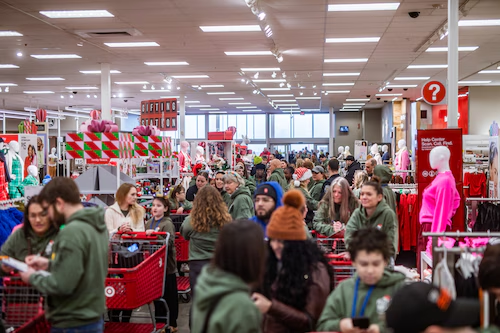Boycott Begins: Target Faces Consumer Backlash
3 min read
Target, one of the largest U.S. retailers, is now facing a 40-day consumer boycott starting today. The protest stems from the company’s decision to scale back its diversity, equity, and inclusion (DEI) initiatives, leading to criticism from DEI advocates, customers, and even members of its founding family.
Why Is Target Being Boycotted?
The movement, led by Atlanta-based megachurch pastor Rev. Jamal Bryant, urges shoppers to avoid Target in response to its recent policy changes. The retailer announced it would no longer enforce hiring goals for minority employees, dissolved its executive committee focused on racial justice, and adjusted its DEI strategy.
The Business Impact Of Diversity, Equity And Inclusion
“We’re asking consumers to stop supporting Target because they’ve turned their back on our community,” Bryant told CNN. The boycott coincides with Lent, a significant period for many faith communities, adding symbolic weight to the protest.
Target Caught in a Broader Debate
Target is among several Fortune 500 companies re-evaluating their DEI policies due to legal and political challenges. The Trump administration has pledged to investigate what it calls “illegal DEI” practices, putting businesses under heightened scrutiny.
However, Target’s shift has sparked more controversy than similar moves by competitors. The company has built a reputation as a progressive brand, supporting LGBTQ+ rights and racial justice. Critics argue that its recent changes contradict these values. Even Anne and Lucy Dayton, daughters of one of Target’s co-founders, have publicly expressed disappointment.

Is the Boycott Impacting Target?
Early data suggests the boycott may already be affecting Target. According to analytics firm Placer.ai, foot traffic at Target stores has declined more sharply than at Walmart and Costco. While external factors like weather and economic conditions could be influencing trends, analysts believe consumer backlash is playing a role.
Target is also navigating financial challenges beyond the boycott. The retailer recently reported slower sales growth and faces potential cost increases due to tariffs on Mexican imports. CEO Brian Cornell has warned that grocery prices may rise soon, adding further pressure to the company’s financial outlook.
“Target faces a growing consumer boycott after scaling back DEI initiatives. Learn why customers are protesting, how it affects sales, and what it means for the brand.”
How Black-Owned Businesses Are Affected
Not all DEI supporters back the boycott. Melissa Butler, CEO of the Black-owned cosmetics brand The Lip Bar, expressed concern that withdrawing support from Target could negatively impact minority entrepreneurs who sell their products through the retailer.
“We don’t want these minority businesses to suffer or face unintended consequences,” Butler said in a TikTok video.
Target’s Response
Target has not directly addressed the boycott but reaffirmed its commitment to inclusivity. A company spokesperson highlighted its ongoing support for Black- and minority-owned brands.
What’s Next for Target?
With the boycott set to last 40 days, Target faces increasing pressure from both DEI advocates and critics of corporate diversity efforts. The company must balance its reputation for inclusivity with evolving political and economic realities.
Whether the movement gains traction or fades after Lent remains uncertain. However, how Target responds to this controversy could shape its brand perception and customer loyalty in the long run.
READ MORE : FinCEN Pauses BOI Reporting Penalties: What Businesses Need to Know




